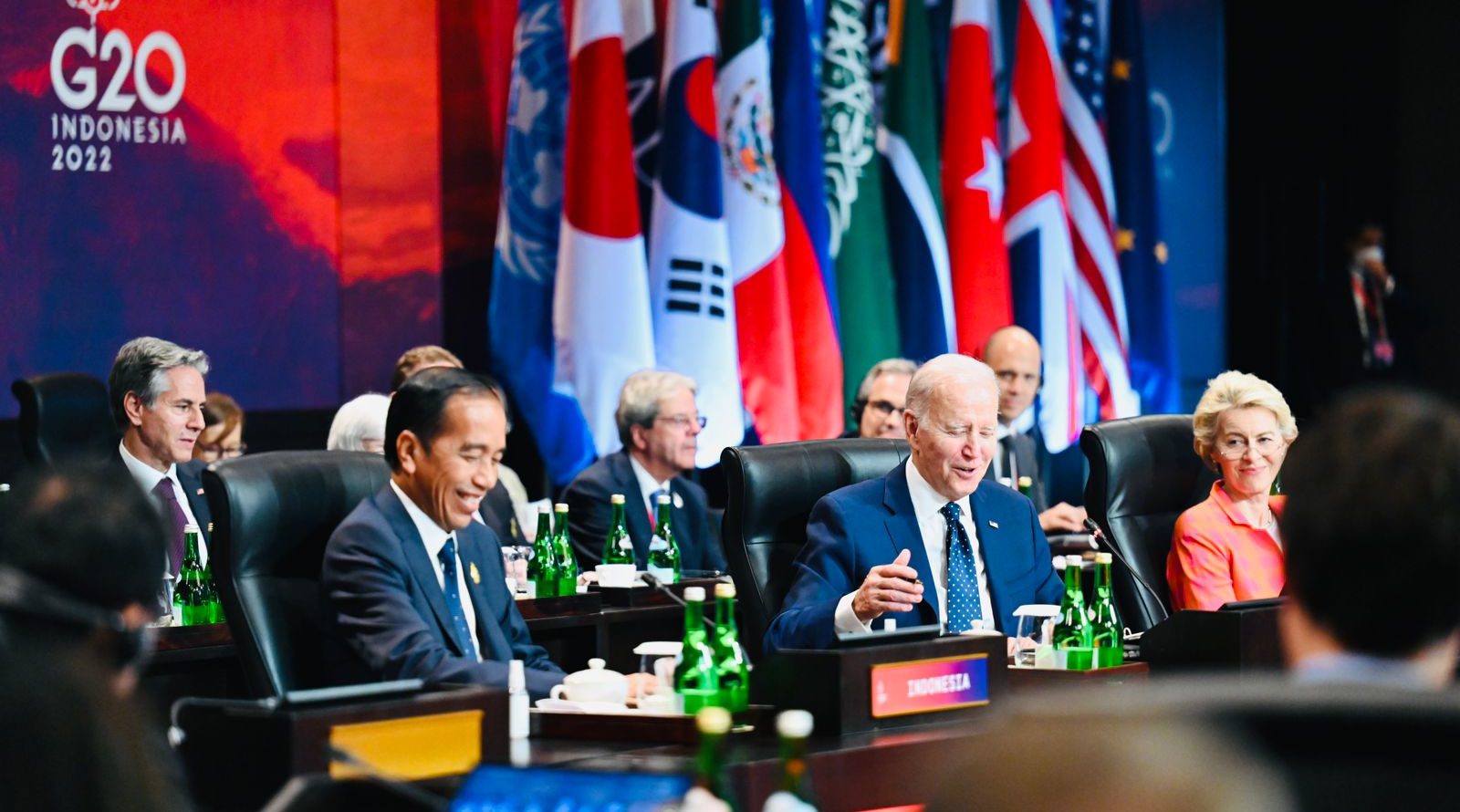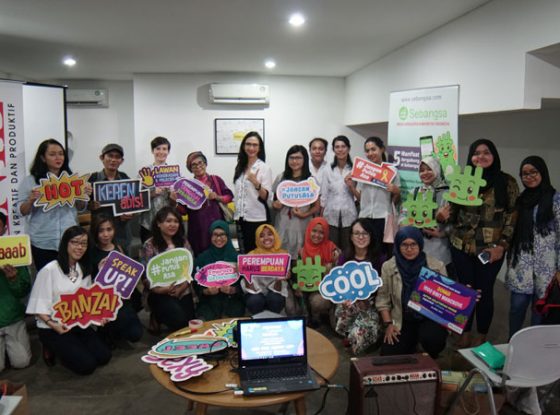Indonesia seals $20 billion deal with G7 to speed up clean energy transition

- Indonesia and the G7 have agreed on a $20 billion financing deal that will help the Southeast Asian nation speed up its transition from fossil fuels to renewable energy.
- The Just Energy Transition Partnership (JETP) was announced at the G20 summit being hosted in Indonesia this week, with the funding to come in the form of grants, concessional loans, market-rate loans, guarantees, and private investments.
- The funding will come from both public and private financing, with details of the investment plan to be ironed out in the next six months.
- Under the partnership, Indonesia will aim to cap its emissions from the power sector by 2030, faster than the initial target of 2037, and to generate 34% of its electricity from renewable sources by 2030.
JAKARTA — Indonesia has struck a historic deal with the G7 group of industrialized countries on a $20 billion financing package to help it speed up its transition from fossil fuels to renewable energy.
The Just Energy Transition Partnership (JETP) will see the G7 plus Denmark and Norway deliver the funding to Indonesia over the next three to five years.
“If you look at the investment values that are brought together under the terms of this partnership, it is arguably the single largest country-specific climate investment partnership ever,” John Morton, counselor to the U.S. treasury secretary, said at a press conference at the G20 summit taking place this week on the Indonesian island of Bali.
The funding will go toward developing renewable energy, such as solar and geothermal, and phasing out fossil fuels, including shutting down coal-fired power plants, which currently account for the majority of Indonesia’s energy mix.
“This partnership will generate valuable lessons for the global community and can be replicated in other countries to help meet our shared climate goals through concrete collaborative actions,” Indonesian President Joko Widodo said at the announcement of the partnership.
Indonesia was the world’s fifth-largest greenhouse gas emitter in 2019, behind only China, the U.S., India and the EU as a whole. Its emissions largely come from deforestation and burning of coal, with the latter generating 61% of the country’s electricity.
Emissions from Indonesia’s power sector are projected to keep increasing as the country grows its economy, the largest in Southeast Asia and 17th largest in the world by nominal GDP.
By embarking on a clean energy transition and cooperating with industrialized countries, Indonesia can continue to grow its economy while at the same time lowering its emission to contribute to capping global warming at 1.5° Celsius (2.7° Fahrenheit) above pre-industrial levels, according to Indonesian Coordinating Minister of Investment Luhut Binsar Pandjaitan.
“We believe that we must not sacrifice for economic development, but that we must also build a more sustainable economy for the future generation,” he said at a press conference in Bali after the announcement of the partnership.
The JETP is also designed to benefit communities and groups affected directly or indirectly by the energy transition, such as the shutting down of coal plants.
“The resulting new and accelerated targets demonstrate how countries can dramatically cut emissions and increase renewable energy while advancing a commitment to creating quality jobs and protecting livelihoods and communities,” U.S. President Joe Biden said.
Achmed Shahram Edianto, an analyst at energy think tank Ember, said the JETP could go a long way toward speeding up Indonesia’s energy transition.
“JETP should be the final piece of Indonesia’s puzzle to accelerate its energy transition,” he said. “Under the JETP, Indonesia should maintain its remarkable momentum and show its leadership on accelerating the efforts to fully decarbonize its energy sector, while also ensuring the just transition for workers and communities that have historical reliance on fossil-based value chain economic activities.”

Source : https://news.mongabay.com
Mix of loans and grants
The agreed $20 billion fund will be split evenly between public and private financing in the forms of grants, concessional loans, market-rate loans, guarantees, and private investments.
For the private financing, seven global financial institutions — Bank of America, Citi, Deutsche Bank, HSBC, Macquarie, MUFG, and Standard Chartered, which are members of the Glasgow Financial Alliance for Net Zero (GFANZ) — have agreed to participate in the partnership.
Experts have called for the funding to be in the form of grants, not loans. This is because industrialized countries like the U.S. and Japan, which are leading the partnership with Indonesia, have long been complicit in keeping the Southeast Asian nation reliant on coal by investing in fossil fuel extraction in the country, according to Andri Prasetiyo, a researcher at Indonesian nonprofit Trend Asia.
There are concerns that the deal with Indonesia will be heavy on loans, similar to the JETP struck last year between industrialized countries and South Africa. Under that deal, valued at $8.5 billion, less than 4% of the funds will be in the form of grants.
“I’m worried that JETP [in Indonesia] will fail in supporting the most critical element of a just transition by only giving out loans and not giving enough portion for grants or soft lending for developing countries [like Indonesia],” Andri said.
Details on how the money will be spent will be ironed out in a comprehensive investment plan expected to be finished within the next six months.
This upcoming investment plan will be key to whether the partnership succeeds, according to Tiza Mafira, Indonesia director for the Climate Policy Initiative (CPI).
“While the JETP package deal entails a significant financial contribution to Indonesia’s climate goals, the main challenge and opportunity lie in overall energy sector reform, including detailed investment plans that the government must further develop to maximize additional capital mobilization as well as positive socioeconomic impacts from this funding,” she said.
With the detailed investment plan still to be drafted, the signatories of the deal have agreed on a number of targets.
For one, Indonesia will aim to cap its GHG emissions from the power sector at 290 million metric tons by 2030, rather than its initial goal of 2037. It will do this by retiring coal-fired power plants, starting with 5.2 gigawatts of existing coal power in the initial phase, Luhut said. The government will also freeze new power plant projects.
Another target is for Indonesia to develop renewables to account for at least 34% of all power generation by 2030, which would double the total renewables deployment over the course of this decade compared to current plans.
These are then expected to help Indonesia to reach its ultimate target of net-zero emissions in the power sector by 2050.
In total, the JETP is expected to reduce more than 300 million metric tons of GHG emissions through 2030, and more than 2 billion metric tons through 2060 from the current business-as-usual projection.
“And just to put those numbers in perspective, 300 megatons is the equivalent of taking half of U.S. passenger cars off the road for one year,” Morton said. “And 2 gigatons is equivalent to about 50% of global power sector emissions in any given year.”
Banner image: Indonesian President Joko Widodo (left) and U.S. President Joe Biden during a side event of the G20 Summit in Bali, Indonesia. Image courtesy of the Indonesian Presidential Secretariat.
Source : news.mongabay.com



